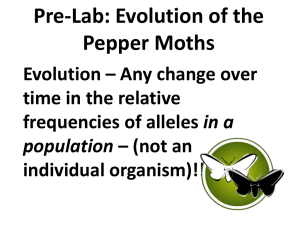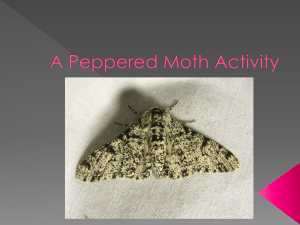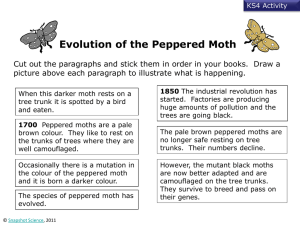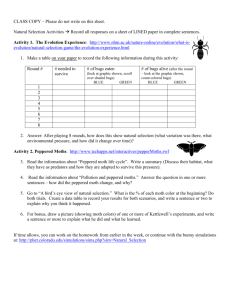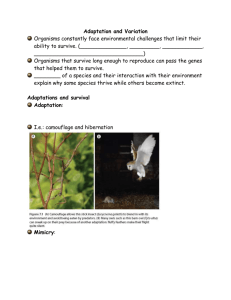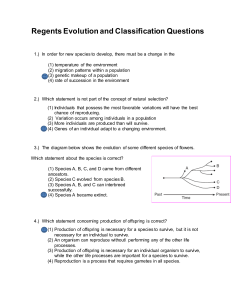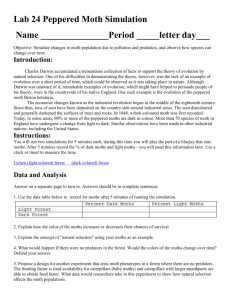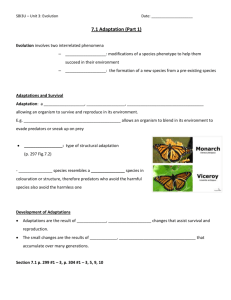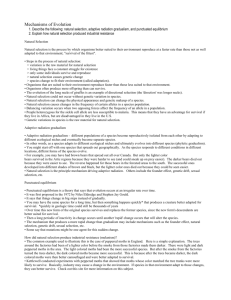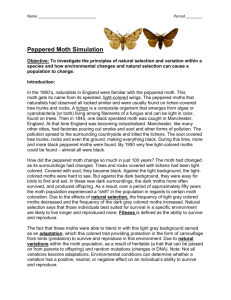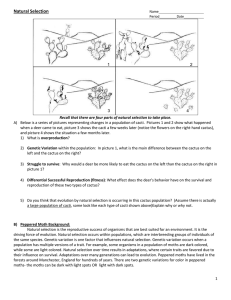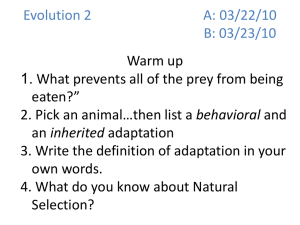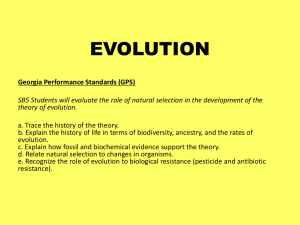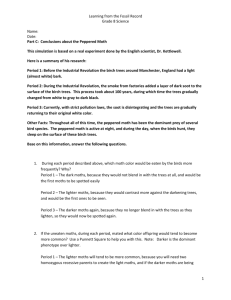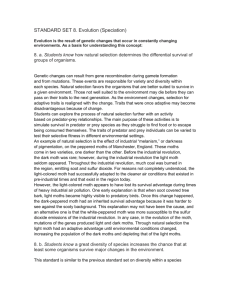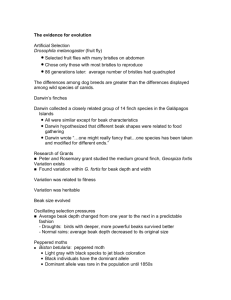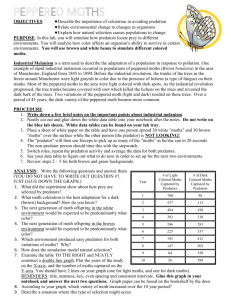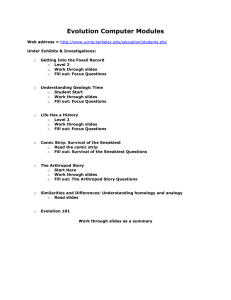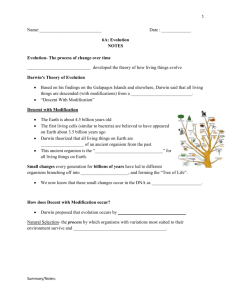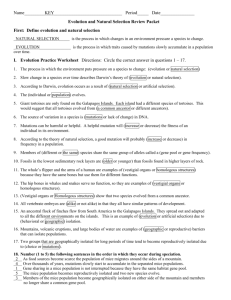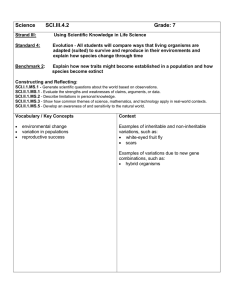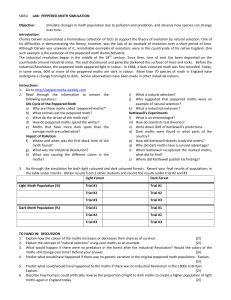Lab Recaps
advertisement
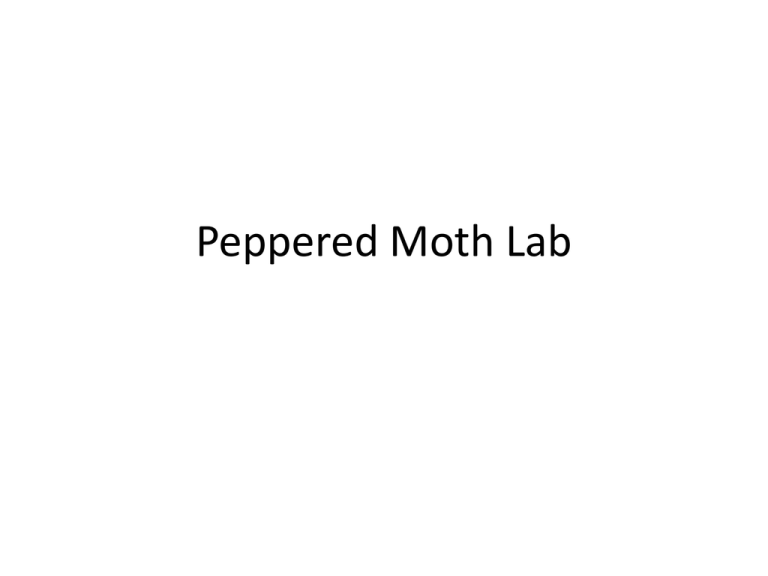
Peppered Moth Lab Real Life Moth Example • Moths are found in large numbers in England • The peppered moth always thrived and lived easily, being able to blend in with the light colored bark trees found all over England. Any other moths? • There was a darker colored moth that was around, but it was found in much smaller numbers. Its dark color did not blend in with the trees as much, so it was not as FIT for its environment What happened… • When the “Industrial Revolution” spread around England, factories were putting out an extreme amount of pollution • This pollution stuck to the trees, making them a darker color in the process – How is that going to affect the population of moths?...... After some time… • The trees became darker, which allowed for the darker colored moths to be camouflaged • Because of this, the light peppered moths were found more easily by birds and eaten • How do you think this impacted the next generations of moths found there? Look familiar? Analysis Questions • 1. What did the experiment show about how prey are selected by predators? – Different factors are involved, but environment has a large impact on which organisms will survive. – In this example, organisms that are camouflaged can hid from prey and have a lower chance of getting eaten. • The ones that blend in can still get eaten but not as frequently Analysis Questions • 2. What moth coloration is the best adaptation for a dark background? How do you know? – Dark color because they are able to blend in with the background, making it more difficult to find in the wild. Analysis Questions • 4. Define Natural Selection – “Survival of the Fittest” – Organisms that are best fit / best adapted to their environment will survive and reproduce. Those traits will be passed on to their offspring Analysis Questions • 5. How does the simulation model natural selection? – The background determined which color moth was “most fit” and would survive to reproduce. This would then lead to a population dominated by that color that survives more. Analysis Questions • 8. Imagine an organism that isn’t the most fit for its environment, in addition to dying, what can happen to that organism? – Adapt (ex. Eat a different type of food) – Move to a new location ClipBirds Lab Analysis Questions • 1. Why does each of the three bird sizes have different food needs? – To represent what happens in real life. Normally larger organisms need to consume more food/calories so they have enough energy to survive Analysis Questions • 5. Why did the ClipLand population change as it did? – It changed as certain beak sizes were being selected for or against. – If a certain sized beak worked best for a food type then that beak would survive and reproduce, producing more of that beak type Analysis Questions • 10. Sometimes animals that are introduced into an area that they never lived in before, out compete and endanger resident species, why do you think this happens? – They have a variation that allows them to be the most fit for that environment Analysis Questions • 11. If only one species is considered the "fittest", why do we still have so many variations among species. Why do some birds have very long pointy beaks, while other birds have short flat beaks? – If resources are not limited, multiple different species can survive. – Earths variation of food and environments allow multiple species to survive.
